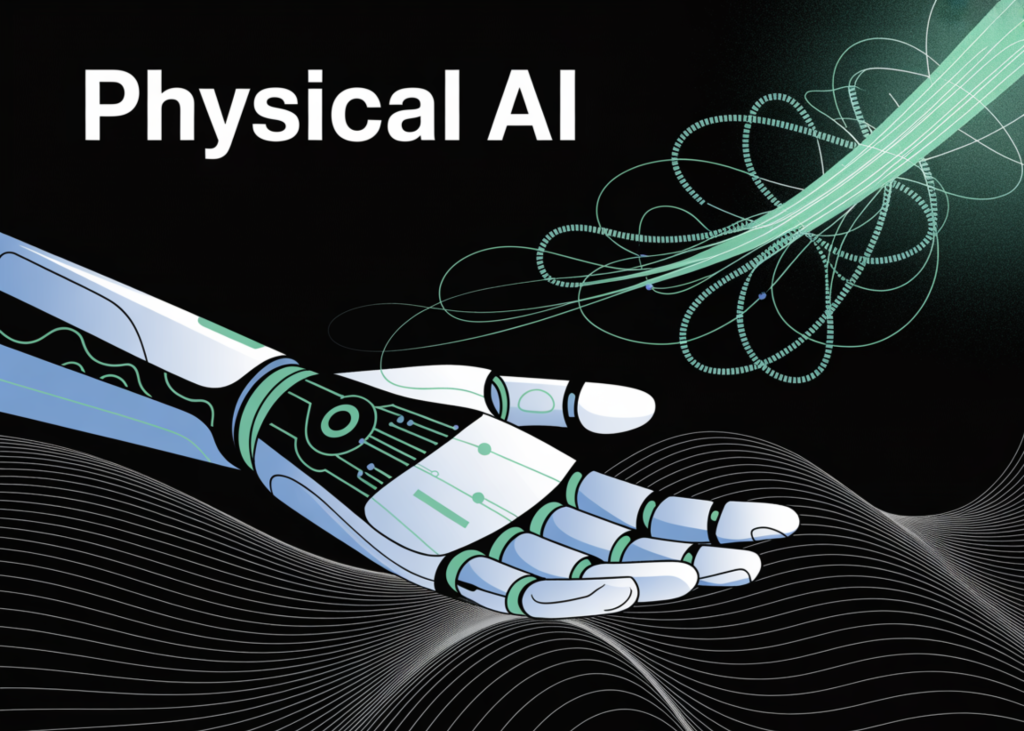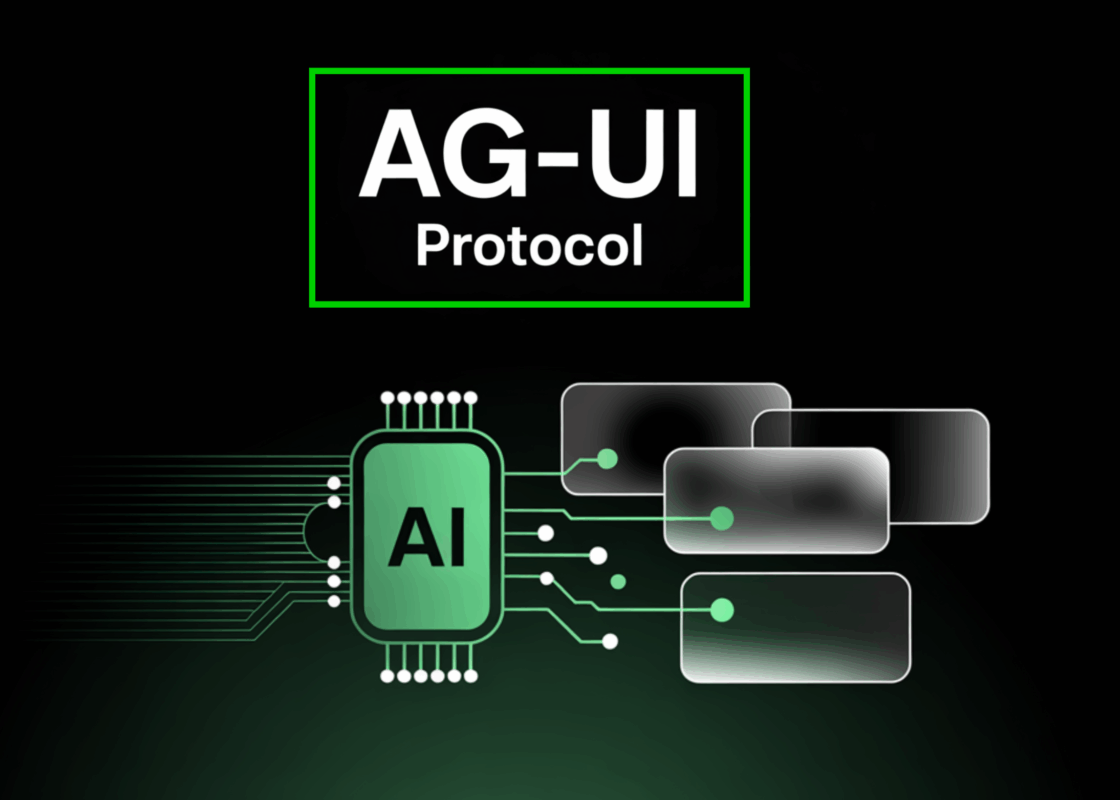Blog
Physical AI: Bridging Robotics, Material Science, and Artificial Intelligence for Next-Gen Embodied Systems

Understanding Physical AI: The Convergence of Robotics, Material Science, and AI
Introduction to Physical AI
As technology continues to evolve, a new frontier known as Physical AI is emerging. This innovative field combines the realms of robotics, material science, and artificial intelligence (AI) to create advanced embodied systems. But what exactly is Physical AI, and how is it set to revolutionize our world?
Defining Physical AI
Physical AI refers to the integration of intelligent algorithms with the physical capabilities of robots and materials. In this context, embodied systems are not just mere machines; they possess the ability to interact effectively with their environment by leveraging AI-driven decision-making. This multi-disciplinary approach enables machines to perform complex tasks in real-world settings, pushing the boundaries of their operational capabilities.
The Robotics Component
Evolution of Robotics
Over the past decade, robotics has seen unprecedented advancements. Modern robots are becoming increasingly sophisticated, equipped with advanced sensors and actuators that allow them to navigate and manipulate their surroundings with enhanced precision.
Role of Robotics in Physical AI
In Physical AI, robotics plays a crucial role. By integrating AI algorithms, robots can learn from their environment and improve their performance over time. This adaptability not only enhances efficiency but also opens the door to a wide array of applications, from manufacturing to healthcare.
The Influence of Material Science
What is Material Science?
Material science is an interdisciplinary field that focuses on the properties and applications of materials. This discipline has been essential in developing new substances that can withstand various conditions while maintaining functionality.
Material Science’s Contribution to Physical AI
The relevance of material science in Physical AI cannot be overstated. Innovations in materials, such as smart materials and flexible electronics, allow robots to become more responsive and adaptive. For instance, materials that can change their properties in response to external stimuli can enhance the capabilities of embodied systems, making them more efficient and versatile.
The Intersection with Artificial Intelligence
The Role of AI in Physical Applications
Artificial intelligence serves as the brain of Physical AI. It empowers robotic systems to analyze data, learn from experiences, and make informed decisions. With advancements in machine learning and deep learning, AI algorithms are becoming increasingly effective at processing large amounts of data and discerning patterns.
AI Enhancing Robotics and Materials
AI not only enhances the operational capabilities of robotics but also optimizes the performance of materials in practical applications. For instance, AI can predict wear and tear in materials or optimize their configuration for specific tasks, thereby extending their lifespan and utility.
Real-World Applications of Physical AI
Healthcare Innovations
One of the most promising areas for Physical AI is healthcare. Embodied systems equipped with advanced robotics and smart materials can assist in patient care, from robotic surgery to rehabilitation. These systems can adapt to individual patient needs, improving outcomes and operational efficiency.
Manufacturing Excellence
In manufacturing, Physical AI facilitates automation and precision. Intelligent robots can manage complex assembly lines, learn from process variations, and make real-time adjustments, resulting in lower production costs and higher quality products.
Challenges in Implementing Physical AI
Technical Barriers
While the potential of Physical AI is vast, several technical challenges must be addressed. From enhancing the durability and responsiveness of materials to ensuring seamless integration between robotic systems and AI algorithms, ongoing research is critical for overcoming these hurdles.
Ethical Considerations
As with any emerging technology, ethical considerations surrounding Physical AI are paramount. Issues regarding job displacement, data privacy, and decision-making transparency must be thoughtfully navigated to ensure that these technologies are deployed responsibly.
The Future of Physical AI
Advancements on the Horizon
The future of Physical AI is a landscape filled with possibilities. As advancements in sensor technology, machine learning, and material science continue to progress, we can expect more intelligent, adaptable, and efficient embodied systems.
Societal Impact
The societal implications of Physical AI are profound. As these systems become more integrated into our daily lives, they have the potential to reshape industries, enhance human capabilities, and improve overall quality of life.
Conclusion: Embracing the Future of Physical AI
The convergence of robotics, material science, and artificial intelligence in Physical AI offers a transformative vision for the future. By advancing our understanding and utilization of this interdisciplinary approach, we can unlock unprecedented opportunities that benefit society. As we continue to explore this exciting field, the potential benefits are boundless, paving the way for smarter, more adaptive technologies that can enhance our interaction with the world around us.
In a rapidly evolving tech landscape, embracing Physical AI can significantly enhance our capabilities, making it an essential focus for researchers, developers, and industry leaders alike. As we step into this new realm, the integration of intelligence into physical systems heralds an era defined by innovation and unprecedented possibilities.
Elementor Pro
In stock
PixelYourSite Pro
In stock
Rank Math Pro
In stock
Related posts
Building a WordPress Plugin | Jon learns to code with AI
How to add custom Javascript code to WordPress website
6 Best FREE WordPress Contact Form Plugins In 2025!
Solve Puzzles to Silence Alarms and Boost Alertness
Conheça AI do WordPress para construção de sites
WordPress vs Shopify: The Ultimate Comparison for Online Store Owners | Shopify Tutorial
Apple Ends iCloud Support for iOS 10, macOS Sierra on Sept 15, 2025
How to Speed up WordPress Website using AI 🔥(RapidLoad AI Plugin Review)
Bringing AI Agents Into Any UI: The AG-UI Protocol for Real-Time, Structured Agent–Frontend Streams
Web Hosting vs WordPress Web Hosting | The Difference May Break Your Site
Google Lays Off 200+ AI Contractors Amid Unionization Disputes
MIT’s LEGO: A Compiler for AI Chips that Auto-Generates Fast, Efficient Spatial Accelerators
Products
-
 Rayzi : Live streaming, PK Battel, Multi Live, Voice Chat Room, Beauty Filter with Admin Panel
Rayzi : Live streaming, PK Battel, Multi Live, Voice Chat Room, Beauty Filter with Admin Panel
$98.40Original price was: $98.40.$34.44Current price is: $34.44.In stock
-
 Team Showcase – WordPress Plugin
Team Showcase – WordPress Plugin
$53.71Original price was: $53.71.$4.02Current price is: $4.02.In stock
-
 ChatBot for WooCommerce – Retargeting, Exit Intent, Abandoned Cart, Facebook Live Chat – WoowBot
ChatBot for WooCommerce – Retargeting, Exit Intent, Abandoned Cart, Facebook Live Chat – WoowBot
$53.71Original price was: $53.71.$4.02Current price is: $4.02.In stock
-
 FOX – Currency Switcher Professional for WooCommerce
FOX – Currency Switcher Professional for WooCommerce
$41.00Original price was: $41.00.$4.02Current price is: $4.02.In stock
-
 WooCommerce Attach Me!
WooCommerce Attach Me!
$41.00Original price was: $41.00.$4.02Current price is: $4.02.In stock
-
 Magic Post Thumbnail Pro
Magic Post Thumbnail Pro
$53.71Original price was: $53.71.$3.69Current price is: $3.69.In stock
-
 Bus Ticket Booking with Seat Reservation PRO
Bus Ticket Booking with Seat Reservation PRO
$53.71Original price was: $53.71.$4.02Current price is: $4.02.In stock
-
 GiveWP + Addons
GiveWP + Addons
$53.71Original price was: $53.71.$3.85Current price is: $3.85.In stock
-
 JetBlog – Blogging Package for Elementor Page Builder
JetBlog – Blogging Package for Elementor Page Builder
$53.71Original price was: $53.71.$4.02Current price is: $4.02.In stock
-
 ACF Views Pro
ACF Views Pro
$62.73Original price was: $62.73.$3.94Current price is: $3.94.In stock
-
 Kadence Theme Pro
Kadence Theme Pro
$53.71Original price was: $53.71.$3.69Current price is: $3.69.In stock
-
 LoginPress Pro
LoginPress Pro
$53.71Original price was: $53.71.$4.02Current price is: $4.02.In stock
-
 ElementsKit – Addons for Elementor
ElementsKit – Addons for Elementor
$53.71Original price was: $53.71.$4.02Current price is: $4.02.In stock
-
 CartBounty Pro – Save and recover abandoned carts for WooCommerce
CartBounty Pro – Save and recover abandoned carts for WooCommerce
$53.71Original price was: $53.71.$3.94Current price is: $3.94.In stock
-
 Checkout Field Editor and Manager for WooCommerce Pro
Checkout Field Editor and Manager for WooCommerce Pro
$53.71Original price was: $53.71.$3.94Current price is: $3.94.In stock
-
 Social Auto Poster
Social Auto Poster
$53.71Original price was: $53.71.$3.94Current price is: $3.94.In stock
-
 Vitepos Pro
Vitepos Pro
$53.71Original price was: $53.71.$12.30Current price is: $12.30.In stock
-
 Digits : WordPress Mobile Number Signup and Login
Digits : WordPress Mobile Number Signup and Login
$53.71Original price was: $53.71.$3.94Current price is: $3.94.In stock
-
 JetEngine For Elementor
JetEngine For Elementor
$53.71Original price was: $53.71.$3.94Current price is: $3.94.In stock
-
 BookingPress Pro – Appointment Booking plugin
BookingPress Pro – Appointment Booking plugin
$53.71Original price was: $53.71.$3.94Current price is: $3.94.In stock
-
 Polylang Pro
Polylang Pro
$53.71Original price was: $53.71.$3.94Current price is: $3.94.In stock
-
 All-in-One WP Migration Unlimited Extension
All-in-One WP Migration Unlimited Extension
$53.71Original price was: $53.71.$3.94Current price is: $3.94.In stock
-
 Slider Revolution Responsive WordPress Plugin
Slider Revolution Responsive WordPress Plugin
$53.71Original price was: $53.71.$4.51Current price is: $4.51.In stock
-
 Advanced Custom Fields (ACF) Pro
Advanced Custom Fields (ACF) Pro
$53.71Original price was: $53.71.$3.94Current price is: $3.94.In stock
-
 Gillion | Multi-Concept Blog/Magazine & Shop WordPress AMP Theme
Rated 4.60 out of 5
Gillion | Multi-Concept Blog/Magazine & Shop WordPress AMP Theme
Rated 4.60 out of 5$53.71Original price was: $53.71.$5.00Current price is: $5.00.In stock
-
 Eidmart | Digital Marketplace WordPress Theme
Rated 4.70 out of 5
Eidmart | Digital Marketplace WordPress Theme
Rated 4.70 out of 5$53.71Original price was: $53.71.$5.00Current price is: $5.00.In stock
-
 Phox - Hosting WordPress & WHMCS Theme
Rated 4.89 out of 5
Phox - Hosting WordPress & WHMCS Theme
Rated 4.89 out of 5$53.71Original price was: $53.71.$5.17Current price is: $5.17.In stock
-
 Cuinare - Multivendor Restaurant WordPress Theme
Rated 4.14 out of 5
Cuinare - Multivendor Restaurant WordPress Theme
Rated 4.14 out of 5$53.71Original price was: $53.71.$5.17Current price is: $5.17.In stock
-
 Eikra - Education WordPress Theme
Rated 4.60 out of 5
Eikra - Education WordPress Theme
Rated 4.60 out of 5$62.73Original price was: $62.73.$5.08Current price is: $5.08.In stock
-
 Tripgo - Tour Booking WordPress Theme
Rated 5.00 out of 5
Tripgo - Tour Booking WordPress Theme
Rated 5.00 out of 5$53.71Original price was: $53.71.$4.76Current price is: $4.76.In stock

















